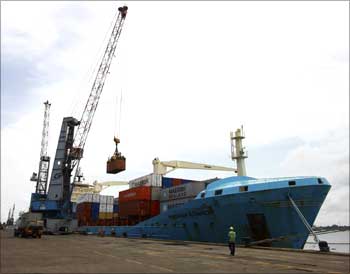 Emerging markets, with the exception of India, are facing their fifth consecutive year of slow growth and a possibly longer period of sluggish performance than previously thought, the World Bank has said.
Emerging markets, with the exception of India, are facing their fifth consecutive year of slow growth and a possibly longer period of sluggish performance than previously thought, the World Bank has said.
In a new policy research note ‘Slowdown in Emerging Markets: Rough Patch or Prolonged Weakness?’, the World Bank said since 2010, emerging market growth has been buffeted by global headwinds such as weak international trade, slowing capital flows and slumping commodity prices, external challenges which have compounded domestic problems, including blunted productivity and bouts of political uncertainty. “After enjoying years of enviable economic performance, emerging markets are coming under strain, with a marked divergence in growth among them,” said World Bank Chief Economist and Senior Vice-President Kaushik Basu.
“As some of these economies slow down, the goal of eradicating extreme poverty will become harder as it burrows in and becomes more concentrated in regions most affected by conflict,” he said.
The slowdown in the emerging market, the report said, comes after a golden period of expansion for emerging markets.
In the two decades beginning in the early 1980s, emerging markets almost doubled their contribution to world GDP, acting as the main engine of global economic expansion and accounting for about 60 per cent of global growth during 2010-14.
However, emerging market growth has been fading steadily since 2010, slipping from an average 7.6 per cent in 2010 to a projected less than 4 per cent this year.
China, the Russian Federation and South Africa have all logged three consecutive years of slowing growth, it said.
“Growth in BRICS, with the exception of India, has been slowing significantly after 2010. These slowdowns are expected to continue over the near term,” the report said.
The World Bank said while many emerging markets have implemented reforms in specific areas, a few have announced comprehensive structural reform plans, including China, India, and Mexico.
Although the pace of implementation remains a concern, these plans have been well received by investors, it said.
China continues to gradually implement its November 2013 reform agenda, which spans from financial, fiscal, state-owned enterprise, land and labour reforms to social and environmental measures, the report said.
India formally adopted inflation targeting in 2015, thus strengthening the credibility of the central bank, reduced barriers to FDI in insurance, telecommunications, railways, and retail, eliminated diesel subsidies while raising excise duties on petroleum and diesel fuel, approved the introduction of a harmonised goods and services tax, and committed to increasing public investment, it noted.











 © 2025
© 2025